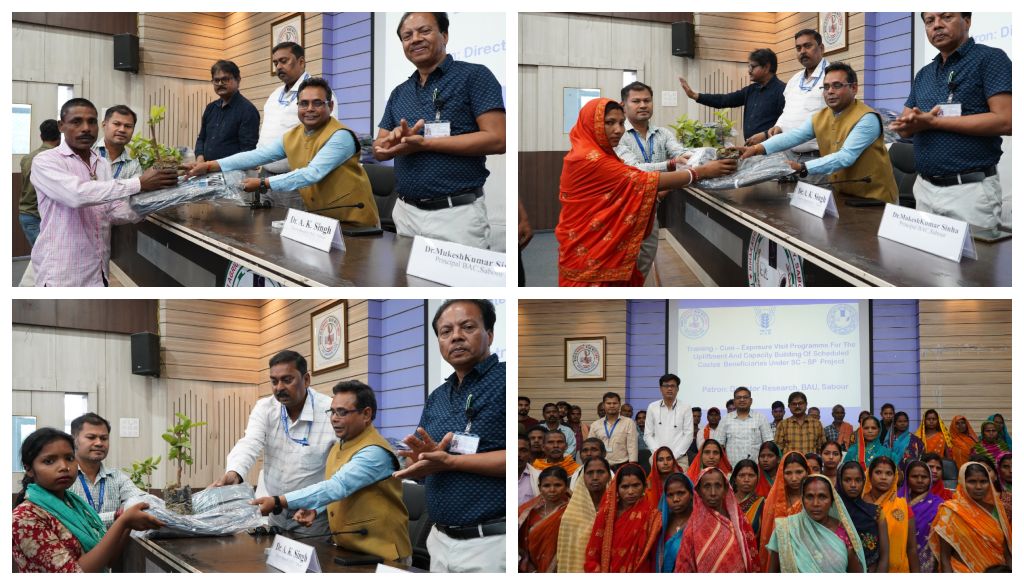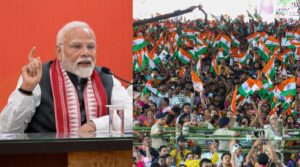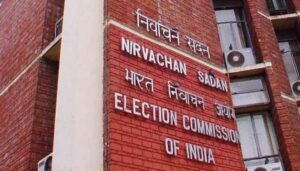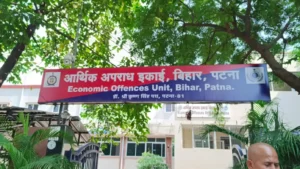Bihar Agricultural University Empowers Marginalized Communities Through Training Program

Sabour: Bihar Agricultural University (BAU), Sabour, has successfully concluded a three-day training program aimed at fostering economic empowerment among Scheduled Caste communities. The initiative, titled the “Marathon Training cum Tour” program, was conducted under the Scheduled Caste Sub-Plan (SCSP) and funded by the Indian Council of Agricultural Research (ICAR), Government of India.
The training, held at the mini auditorium of Bihar Agricultural College, Sabour, commenced on March 29 under the leadership of Dr. A.K. Singh, Director of Research at BAU. The event brought together key figures including M.K. Sinha, Principal of Bihar Agricultural College, Dr. Rajesh Kumar, Senior Scientist and Head of Krishi Vigyan Kendra, Sabour, and project lead Dr. Shashi Kant. Residents from Scheduled Caste communities in Sarauni, Harjin Tola Sabour, Dhankar, and Khankitta in Bhagalpur participated enthusiastically.
Focus on Economic and Social Transformation
The program featured expert-led sessions addressing economic, psychological, and social development. Special emphasis was placed on promoting self-sufficiency through mushroom cultivation, cow rearing, poultry farming, and horticulture. Participants also received guidance on government schemes specifically designed for Scheduled Castes, equipping them with resources to enhance their livelihoods.
Leading agricultural experts, including Dr. Anita Kumari and Dr. Mamta Kumari from Krishi Vigyan Kendra, along with Dr. Panda, Dr. Virendra Kumar, Dr. Rakesh Dev Ranjan, and Dr. Suryavanshi Singh, delivered insightful lectures. In total, 280 trainees benefited from the initiative, gaining hands-on knowledge to improve their economic standing.
Closing Ceremony and Future Prospects
The program culminated in a closing ceremony attended by senior university officials. Beneficiaries were provided with fruit plants, bags, and other agricultural materials to support their continued learning. Speaking at the event, Principal M.K. Sinha highlighted the significance of such training in bridging social gaps and fostering self-sufficiency.
Dr. A.K. Singh commended the initiative, calling for its expansion and a stronger focus on increasing women’s participation in future programs. University spokesperson Dr. Rajesh Kumar underscored the role of sustainable agricultural practices, particularly cow rearing, in driving economic progress for marginalized communities.





